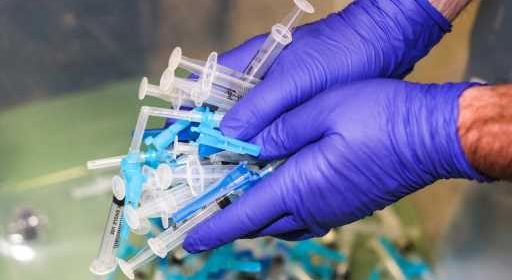Colorado nursing home outbreaks rising again as COVID-19 spread increases

COVID-19 outbreaks are rising again in Colorado’s nursing homes and assisted living facilities, showing the vaccine has reduced, but not eliminated, the risk to older people.
Overall outbreaks rose for a second week, as coronavirus hospitalizations reached their highest levels since Feb. 10. The Colorado Department of Public Health and Environment reported 513 people were hospitalized with confirmed or suspected COVID-19 as of Wednesday afternoon.
New infections were at late-January levels, and the percentage of tests coming positive remained high, suggesting the state could be missing some infections. As of Monday, it had appeared cases were essentially level last week, but after late reports came in, they rose about 8%.
Of the 51 current outbreaks in long-term care facilities, 29 were reported since April 1 — after most residents were vaccinated. The state’s data doesn’t report how many people felt sick, and how many cases were only found by testing, though.
It’s not just a Colorado phenomenon.
On Wednesday, the American Health Care Association, a trade group that represents nursing homes, asked the public to take measures to slow the virus’ spread. While most residents are vaccinated, some chose not to get the shot, and newer residents may have missed clinics offered over the winter. The vaccines are highly effective for the general public, but haven’t been tested in nursing home residents, who may have weaker immune systems.
“We understand that everyone is tired of this pandemic, but it is our most vulnerable who pay the ultimate price by our complacency. We must remain vigilant, and together we can protect our nation’s seniors and end this nightmare,” Mark Parkinson, the group’s president and CEO, said in a statement.
Total outbreaks in Colorado rose to levels last seen in early March. The biggest increases were in schools, long-term care facilities and child care centers.
The state defines an outbreak as two or more cases linked to the same location or event. Outbreaks are considered over when four weeks have passed with no new cases.
The April outbreaks in long-term care facilities are smaller than those that started earlier. So far, 18 residents and 52 staff members were infected in the outbreaks since April 1, and one resident has died. The earlier outbreaks that are still ongoing, some of which date back to November, have infected 138 residents and 126 staff members, and killed 14 people.
While variants may have a role in the current increase in cases, it doesn’t appear that they’re the reason for the outbreaks in populations that are largely vaccinated. Of 2,493 known variant cases in Colorado, only 49 were caused by variants that somewhat reduce the vaccine’s effectiveness. The vast majority were caused by the B.1.1.7 variant, which is significantly more contagious than the version of the virus that previously dominated in Colorado.
A recent study found patients who had B.1.1.7 were no sicker than those with other variants, on average, but that they were younger. It’s not yet clear if B.1.1.7 was more likely to make young people sick enough to need hospitalization, or if the difference just reflects how widely the variant was spreading among that age group in the United Kingdom.
Hospitalizations increased at least half of the days in the past two weeks in six Front Range counties: Larimer, Boulder, Arapahoe, Douglas, El Paso and Pueblo. Ten counties statewide, also including Arapahoe and Douglas, had positivity rates that would have pushed them toward Level Orange or Red on the state’s dial framework, which will lose the force of law on Friday.
Most counties in the Denver area will continue following the restrictions under Level Blue, the second-lowest level, for another month, but Douglas County commissioners voted to lift all capacity restrictions at the end of the week.
Source: Read Full Article